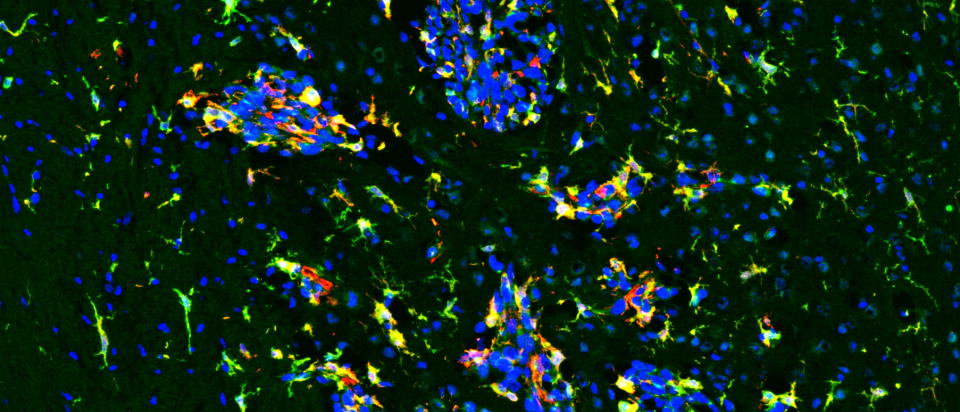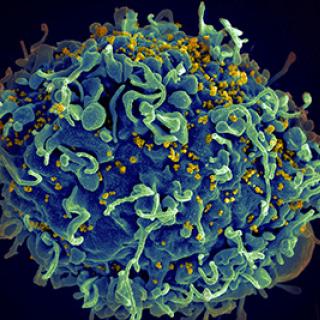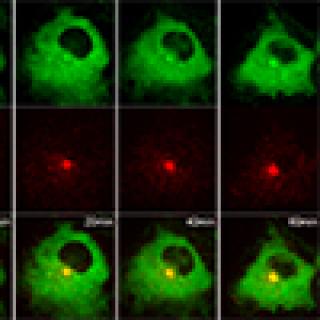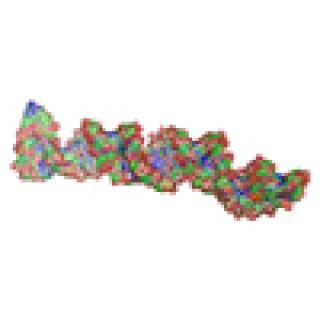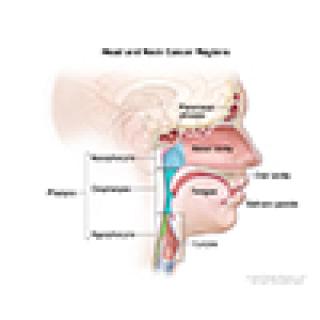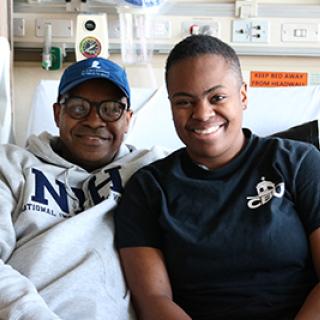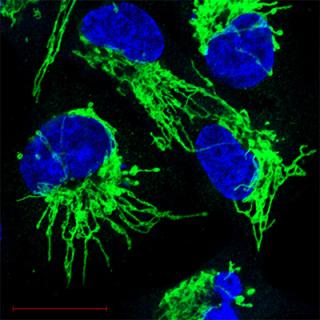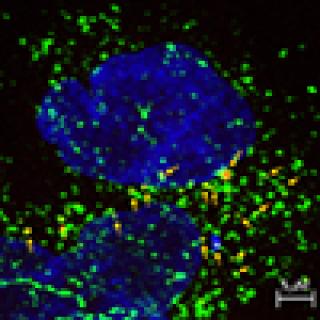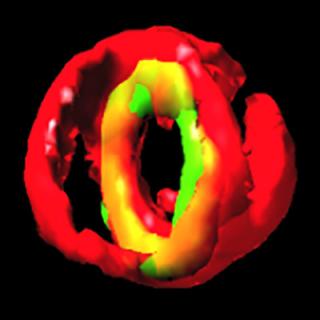News and Events
New Strategy Shows Promise Against Deadly Breast Cancer in the Brain
A new NIH study points to a promising strategy for treating aggressive breast cancer that spreads to the brain, a complication with few effective options. Learn how blocking a key brain cell survival pathway could open the door to future therapies.
Read MoreResearch shows long noncoding RNA influences expression of key HIV receptor
New research from the Center for Cancer Research has identified a long noncoding RNA that influences the expression of CCR5, a receptor that HIV uses to infect immune cells. The finding points to the molecule as a potential marker that indicates a patient’s susceptibility to the virus.
Read MorePediatric Oncology Branch patient shares neurofibromatosis journey at NIH
Xavier, a patient in the Pediatric Oncology Branch, was born with an incompletely formed leg bone and a large number of dark spots all over his body. When Xavier broke his weak leg at only 11 months of age, he was diagnosed with neurofibromatosis type 1 (NF1). He came to the NIH for treatment, and his tumors have shrunk by more than 20 percent thanks to treatment with selumetinib.
Read MoreAkt protein kinase pathway regulates key step in the initiation of cilia formation
CCR investigators have discovered that activating the Akt protein kinase pathway stabilizes the binding of the WDR44 protein to the Rab11 protein. This prevents Rab11 from binding to the Rabin8 protein, thereby blocking cilia formation. When Akt is inactive, though, Rab11 instead is bound by FIP3, enhancing its binding to Rabin8, which helps initiate cilia formation. Since abnormalities in cilia formation are associated with a number of types of cancer, these findings point to several potential targets for cancer therapy.
Read MoreBacterial compound targets cancer-promoting RNA
Screening more than 3,000 natural products identified a compound that stops the growth of cancer cells by targeting a growth-promoting microRNA.
Read MoreInvestigators test combination therapy for head and neck squamous cell carcinoma in new trial
Patients with recurrent head and neck squamous cell carcinoma (HNSCC) may be eligible to participate in a new clinical trial at the NIH Clinical Center. This trial tests a therapy of a novel radiosensitizer, birinapant, in combination with radiotherapy for patients whose HNSCC has come back at or near the place of the original tumor.
Read MoreA patient’s 10-year journey to moxetumomab for hairy cell leukemia
Randy, a father, husband, engineering quality consultant and lifelong “Motor City” resident, was diagnosed with hairy cell leukemia in 1998 at the age of 41. After participation in a clinical trial at the NIH Clinical Center, his body has shown a complete response to the drug moxetumomab pasudotox, which was developed at the National Cancer Institute’s Center for Cancer Research.
Read MoreFrom father to daughter: A bone marrow transplant for GATA2 deficiency
James and Jahleel are a father-daughter duo from Tennessee who came to NIH for Jahleel’s bone marrow transplant. Jahleel was diagnosed with GATA2 deficiency, a rare genetic disease that causes a wide range of symptoms, including myeloid leukemias.
Read MoreProtein mutations lead to human disease by altering a cancer-promoting pathway
Working in collaboration with a team of other scientists, CCR researchers identified the role that the LZTR1 protein plays in disrupting the RAS pathway. It interferes with signaling, largely by dysregulating ubiquitination, a process defined as the attachment of a small protein called ubiquitin to a protein that is degraded by an enzyme.
Read MoreNew therapies tested in mice provide a one-two punch for treating liver cancer
Biopharmaceutical agents that combine the precision of cancer-specific antibodies and the potency of drugs toxic to harmful cells are increasingly being used to treat cancer. A team in CCR has identified two such agents for liver cancer, which were both found to reduce tumor size and prolong survival in mice.
Read MoreStudy reveals function of protein crucial to survival of Staph infections
A team led by Kumaran Ramamurthi, Ph.D.,Senior Investigator in the Laboratory of Molecular Biology, has identified why the GpsB protein is essential for the survival of Staphylococcus aureus, a leading source of infection in cancer patients in hospital settings. These findings, published in eLife, point to GpsB as a possible antibiotic target.
Read More